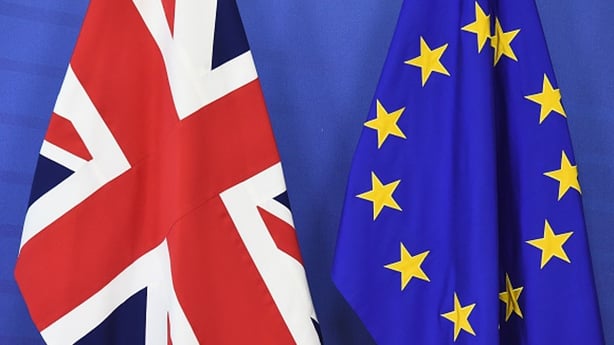European Council President Donald Tusk presented proposals for keeping Britain in the European Union to a mixed response, underlining the challenges Prime Minister David Cameron faces to win over his people and other EU leaders.
The proposals, which addressed all four areas where Mr Cameron has demanded reform, did little to ease doubts among his more Eurosceptic lawmakers and even some of the prime minister's closest allies wondered out loud if the package - which must still be agreed by other EU states - would be enough.
The two sides have been locked in talks trying to find a way for Cameron to win what he calls the "best deal possible" for Britain while keeping other EU states on board before a referendum which could take place as early as in June.
Mr Tusk's text said Britain could immediately suspend welfare payments to EU migrants for four years if Britons voted to stay in the bloc and could, alongside other countries, have new powers to block legislation.
Britain could also opt out of further political integration in the 28-member bloc.
But with Eurosceptics describing the talks as "trivial" and some of Cameron's allies saying the proposals would probably need more work, a summit of EU leaders on 18-19 February was gearing up to be a difficult meeting.
Cameron said in a tweet: "Draft EU renegotiation document shows real progress in all four areas where UK needs change but there's more work to do."
A British government source also issued a note of caution that although many boxes were ticked, any deal needed all 28 EU leaders to sign up.

"For many others (the other 27 member states) we are at the start of the negotiations rather than at the end of it," the source said.
"Nothing is agreed until all 28 member states are on board."
Officials are keen to show Mr Cameron has won agreement with Mr Tusk on two important areas of the renegotiation - on stopping EU legislation it opposes and on curbing migrants' benefits.
In the text, Tusk's proposal would have a legally binding provision allowing a group of 55% or more member states to either stop EU legislation or demand changes to address concerns Britain has handed too much power to Brussels.
It also included a clause saying Britain could suspend some payments to migrants from the bloc for four years, starting immediately after the referendum, after meeting the conditions to trigger a so-called “emergency brake”.
"This has been a difficult process and there are still challenging negotiations ahead. Nothing is agreed until everything is agreed. I am convinced that the proposal is a good basis for a compromise," Mr Tusk said.
As well as curbing migration and returning powers to Britain, Mr Cameron also wants his country excluded from the EU goal of "ever closer union" and says it should be protected against moves by the 19 countries that share the euro currency to impose rules by majority vote on London.
There is much still to decide, including how long the so-called "emergency brake", or suspension, on welfare payments to migrants will be in force and how to enforce protection for London's financial industry.
Talks will continue up to the February summit, but some Eurosceptics say the difficulties in getting a deal are being played up to make an eventual agreement seem like a triumph.
The stakes are high. The referendum will not only determine Britain's future role in world trade and affairs, but also shape the European Union, which has struggled to maintain unity over migration and financial crises, by ripping away its second-largest economy and one of its two main military powers.
Government welcomes publication of proposals
The Irish Government has welcomed the publication of Mr Tusk's proposals as an important step in the current negotiations.
In a statement, the Government said their views on the issue of the UK's EU membership have been made clear repeatedly.
The statement added: "It is very clearly in the interest of Ireland, the UK itself, and of the European Union that the UK decide to remain an active member of our Union: contributing to that outcome is the Government's overall objective in these negotiations.
"The draft decision circulated today and the related documents are complex and detailed and will need to be analysed carefully before a considered response can be given."

